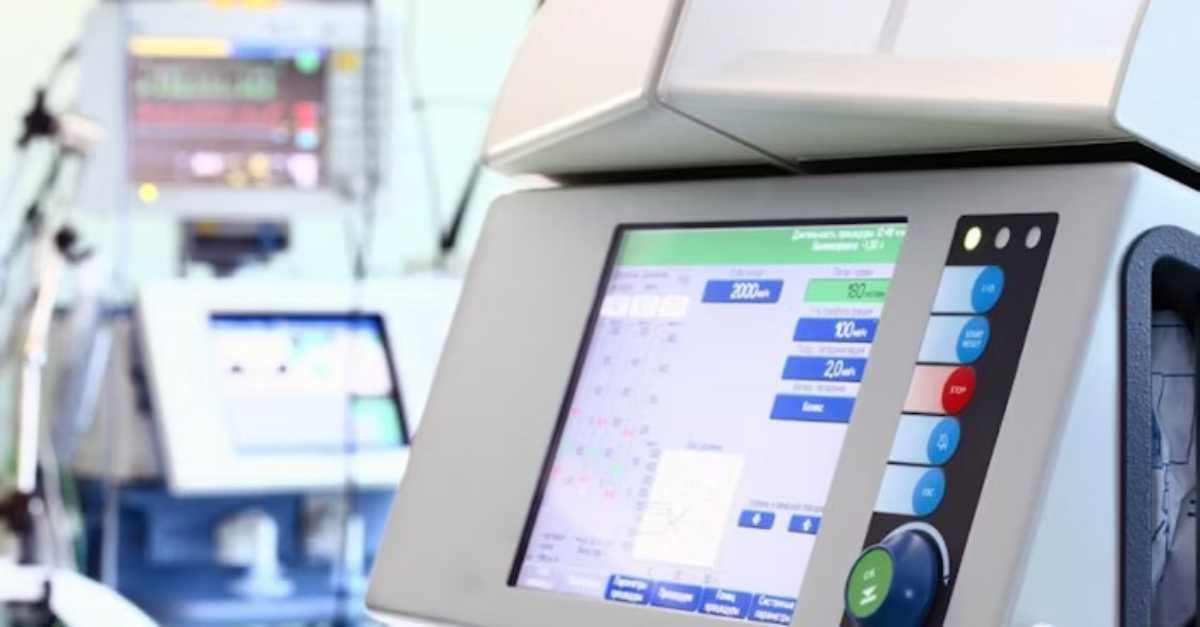
Top Concerns for Healthcare Landlords: Laws & Regulations
Gain confidence that your hospital or healthcare organization is adhering to necessary lease management laws and regulations — and remaining in ...
Solutions
Workplace Management Solutions
Real Estate Management Solutions
Maintenance Management Solutions
Energy Management Solutions
Engineering Document Management Solutions
Asset Management Solutions
Automate campus scheduling for classes, meetings, and exams with our EMS software.
Plan and manage conferences effortlessly with EMS software to impress guests and streamline operations.
Boost workplace flexibility and maximize space use with seamless desk and room booking.
Organize workplace or campus events smoothly, creating memorable experiences.
Optimize workspace, manage allocations efficiently, and reduce costs with our space management solutions.
Deliver projects on time and within budget by improving communication, collaboration, and efficiency with our software.
Streamline lease accounting for ASC 842, IFRS, and GASB compliance.
Manage leases efficiently by tracking key dates, analyzing costs, and ensuring compliance.
Centralize data and analytics for better insights, faster negotiations, and revenue growth.
Centralize facility and asset maintenance, automate work orders, and ensure compliance with our CMMS software.
Extend asset life, reduce downtime, and prevent costly repairs with data-driven monitoring.
Prevent equipment failures and extend asset life by detecting and addressing issues early.
Make sustainable, cost-efficient energy decisions by monitoring and optimizing power consumption.
Remotely monitor and control equipment with real-time data to predict issues, boost efficiency, and reduce downtime.
Easily share and collaborate on documents, creating a single source of truth for engineers and contractors.
Manage and analyze assets across their lifecycle to schedule maintenance, reduce downtime, and extend lifespan.
Improve visibility, automate work orders, and ensure compliance for efficient facility and asset management.
Resources
Browse our full library of resources all in one place, including webinars, whitepapers, podcast episodes, and more.
Support
Looking for access to technical support, best practices, helpful videos, or training tools? You’ve come to the right place.
About Accruent
Get the latest information on Accruent, our solutions, events, and the company at large.

In many instances, it's important that your healthcare facility has the most technologically advanced healthcare equipment. But should you lease or buy?
These pass-through costs have a waterfall effect, ultimately making their way to the patient’s wallet. The newest technological advances, including top-of-the-line equipment, is often a factor in why patients choose to select one provider or network over another. Going even further, where do providers themselves stand on the issue of lease vs. buy in regard to healthcare equipment?
Learn more about Accruent’s Equipment Leasing option for Healthcare.
Leading medical practices and networks have found their answer to lowering costs and reducing the percentage of increase each year through equipment leasing. The high cost of purchased equipment typically sways decision makers, especially in privately owned diagnostic centers or smaller hospitals, who are usually responsible for installing their own equipment. With medical leases running between three to four years, according to MD Magazine's Weighing the Benefits of Buying Versus Leasing Medical Equipment, providers no longer have to consider purchasing an extended warranty. Once the lease expires, they can simply choose a new piece of equipment that is even more cutting-edge than the last.
Medical facilities are always looking for ways to improve patient care and proper treatment. Cost, however, is generally the primary prohibitive factor. With the unknown cost factor (e.g., reactive maintenance, asset failure, etc.) removed because of an effective equipment leasing strategy, the quality of receivable care and treatment options typically increase for the patients. Security concerns about equipment data are also alleviated due to many equipment leasing organizations providing an end-of-life data security clause within the equipment leases, requiring the equipment manufacturer to provide patient data to the healthcare provider in compliance with the law.
Hospitals need to be flexible, with providers able to switch out equipment as the needs of their patients change, or as new and improved equipment hits the market. Leasing medical equipment offers a cost-effective way to have the most up-to-date medical devices without the constant worry of depreciation. Ultimately, it is a common occurrence for organizations in any industry to experience changes, whether it be within personnel, policy, or procedures. Equipment leasing provides an additional peace of mind for responsible parties who may need to adjust lease terms or payments quickly and effectively.
Contact us to understand how we can support your equipment leasing compliance, mitigate risk, and provide transparency across your leased portfolio.
Gain confidence that your hospital or healthcare organization is adhering to necessary lease management laws and regulations — and remaining in ...
Step away from the spreadsheet! Explore five reasons to automate lease administration and ideas for how to implement them in your healthcare ...
Changing standards affect all industries ― and especially healthcare. Explore the new FASB standards and learn how healthcare lease types will be ...
Subscribe to stay up to date with our latest news, resources and best practices